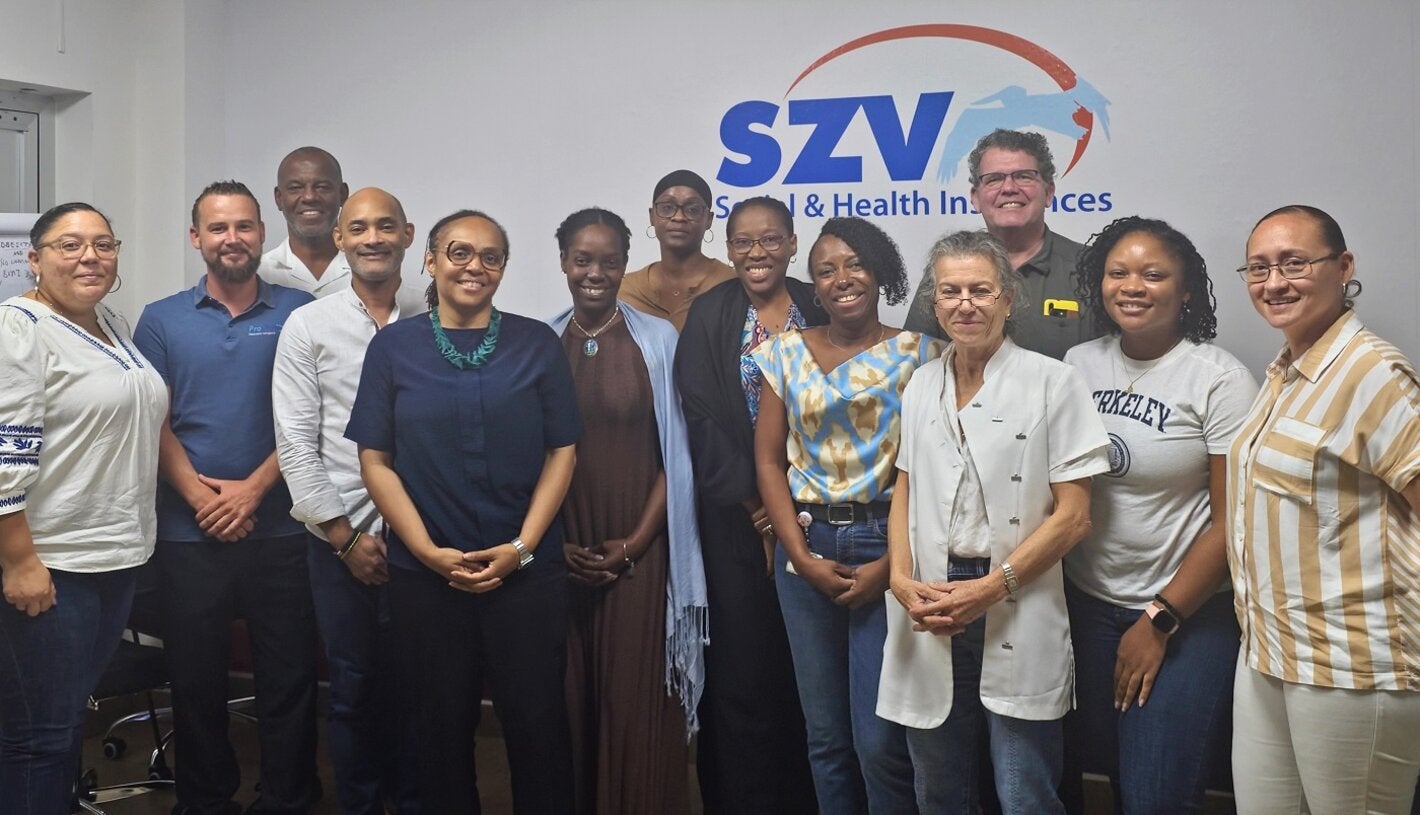
Participants of the HEARTS-D Adaptation Workshop in Sint Maarten with Dr Allana Best, Consultant, Noncommunicable Diseases and Mental Health - PAHO/WHO Trinidad and Tobago Country Office (at centre)
Philipsburg, 14 October 2024, (PAHO) - The Sint Maarten HEARTS-D Adaptation Workshop, held from October 8th to 14th, 2024, marked a milestone in the country’s efforts to enhance diabetes management in primary care. This event was part of the broader Sint Maarten NCD Multisectoral Action Plan 2021-2030, which aims to establish clinical guidelines for managing cardiovascular diseases and diabetes.
Arising out of the successful workshop, a standardized protocol for the screening, diagnosis, and management of type 2 diabetes mellitus in Sint Maarten was validated and finalised. The adoption of this protocol, which was developed in alignment with the PAHO/WHO HEARTS-D Initiative guidelines, is expected to improve the quality of life for residents by providing robust, evidence-based guidelines for primary care.
Throughout the week, key officials from the Ministry of Public Health, Social Development and Labour, members of the Technical Working Group (TWG) and consultants from Primary Care International and the PAHO/WHO Trinidad and Tobago Country Office, engaged in various activities and presentations. These included intensive workshop sessions with the Technical Working Group, presentations which provided an update on the NCD Risk Factor Survey and site visits to clinics implementing the HEARTS protocol.
The HEARTS-D Adaptation Workshop fostered collaboration and consensus among healthcare professionals. The collective efforts of these general practitioners, internists, medical advisors, pharmacists, physiotherapists and diabetes nurse educators ensured a comprehensive and practical approach to the new protocol.
The development of the type 2 diabetes mellitus protocol was a natural progression from the outcomes of the first phase, which included the development of a comprehensive document addressing cardiovascular risk management (CVRM) and the establishment of a national protocol for hypertension management in primary care. The clinical documents from phase one were based on the PAHO/WHO HEARTS Initiative.
PAHO/WHO is pleased to have facilitated this workshop and looks forward to providing more support for similar initiatives in the future, reinforcing its commitment to improving public health across the region.



